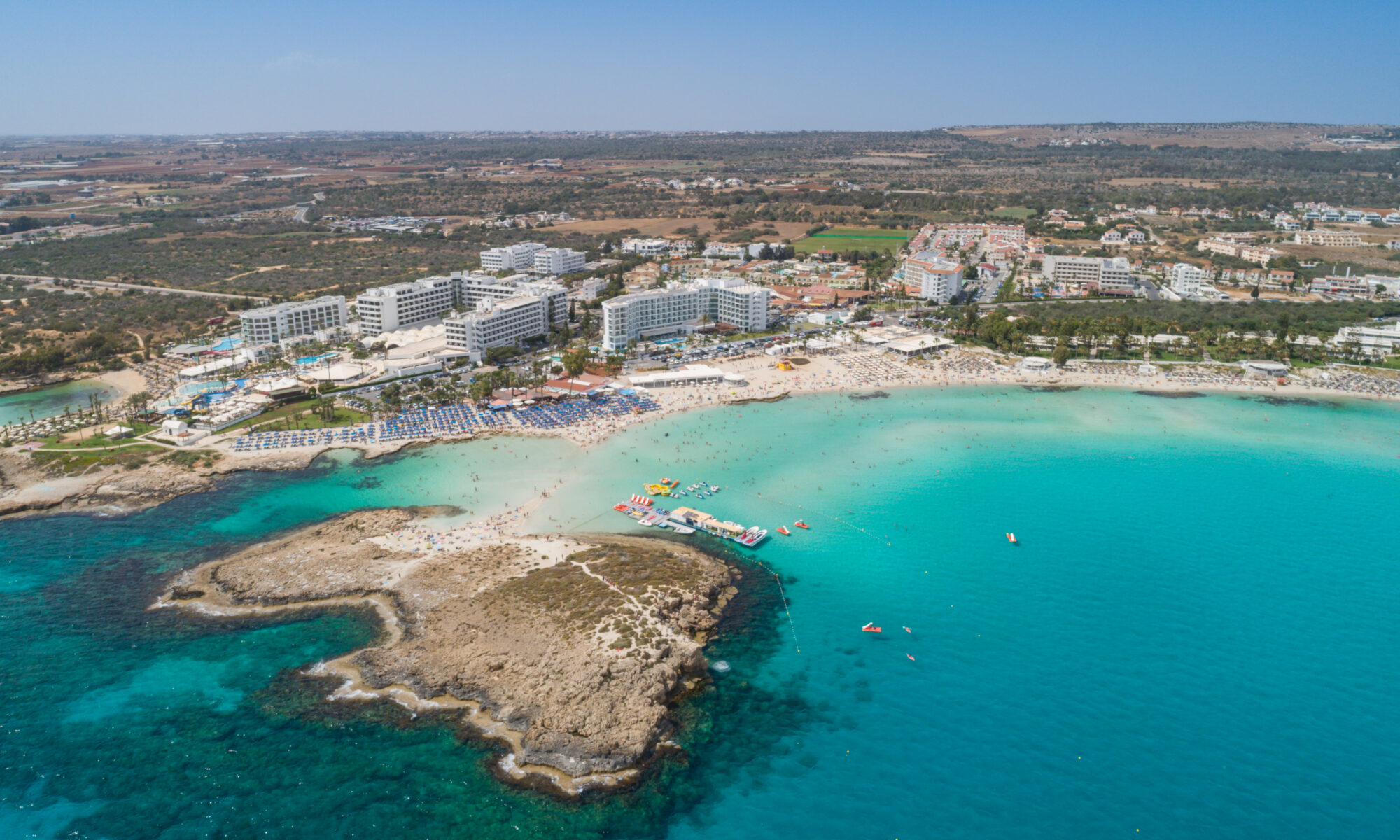Cyprus has a subtropical climate, with very mild winters (at the coasts) and warm to partly hot summers. Just right for a great beach vacation.
Snow is only possible in the Troodos mountains in the central part of the island during January and February. Rain falls mainly in winter, while summer is generally dry all over the island.
Temperatures
Cyprus has one of the warmest climates and warmest winters within the European Union. The average annual temperature at the coast is 24°C during the day and 14°C at night.
In general, the warm temperature season lasts about eight months. It begins in April with average temperatures of 21°C to 23°C during the day and 11°C to 13°C at night, and ends in November with average temperatures of 22°C to 23°C during the day and 12°C to 14°C at night.
During the remaining four months of the year (December to March), temperatures generally remain mild, sometimes still exceeding 20°C during the day.
Midsummer in July and August is usually very hot with an average maximum temperature on the coast of about 35°C during the day and about 25°C at night. In the center of the island the average temperature is above 35°C.
In June and September, the average maximum temperature on the coast is 28°C to 30°C during the day and 18°C to 20°C at night .
While large temperature fluctuations are rare on the coast, the center of Cyprus has more fluctuations, reflected in colder winters and hotter summers.
Water temperatures
The average annual temperature of the Mediterranean Sea around Cyprus is 21°C to 22°C. In February it is 17°C and reaches its maximum temperature of 27°C to 28°C in September. In the seven months from May to November the average sea temperature exceeds 20°C.

Sunshine
Cyprus has an average of 2700 to 3500 hours of sunshine per year. This is about twice as much as in cities in the northern half of Europe. For comparison, Freiburg, the city with the longest sunshine duration in Germany, has just 1740 hours.
In winter, Cyprus has an average of 5 to 6 hours of sunshine per day. In midsummer, on the other hand, the sun often shines continuously for 12 to 13 hours per day.
Rain
Yes, there is rain on Cyprus ;-). But compared to other islands of the Mediterranean, it rains relatively little in Cyprus.
The average rainfall is 375mm per year. There are 300mm to 500mm in the plains and 500mm to 750mm in the western mountainous regions and up to 1000mm on mountain tops. When it rains, it is usually from late October to April.
Snow actually does occur in Cyprus, but only in the Troodos Mountains and only in the winter months. Some jokers even installed a snow lift in the Trodos at the time when Cyprus was a British colony. For skiing and snowboarding there are about 4km of slopes that can be used from the beginning of January until about the end of March.
Outside the cities, Nicosia receives the least precipitation and Kyrenia (in the Turkish-occupied northern part) the most.
Humidity averages 60-80% in winter and 40-60% in summer. The wind is usually light, but stronger in winter.
Actual Weather in Nikosia
Climate in Nikosia

Actual Wheather in Famagusta
Climate in Famagusta

Actual Weather in Larnaka
Climate in Larnaka

Actual Weather in Limassol
Climate in Limassol

Actual Weather in Paphos
Climate in Paphos

Sunrise and Sunset on Cyprus
| Month | Sunrise | Sunset |
| January | 6:55 | 17:00 |
| February | 6:35 | 17:30 |
| March | 6:15 | 17:55 |
| April | 6:00 | 19:20 |
| Mai | 5:45 | 19:45 |
| June | 5:30 | 20:00 |
| July | 5:45 | 20:00 |
| August | 6:05 | 19:35 |
| September | 6:20 | 18:55 |
| October | 6:30 | 18:15 |
| November | 6:45 | 16:45 |
| December | 6:50 | 16:35 |

